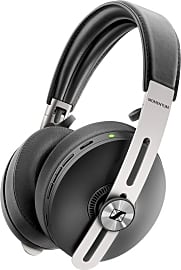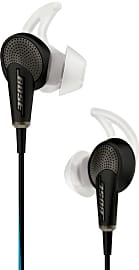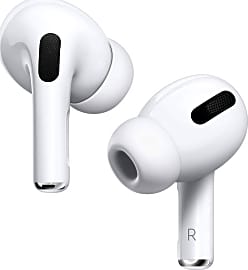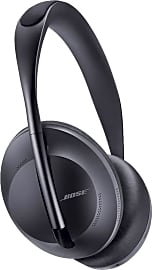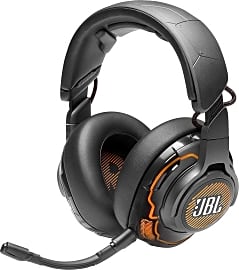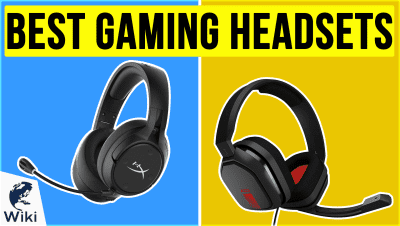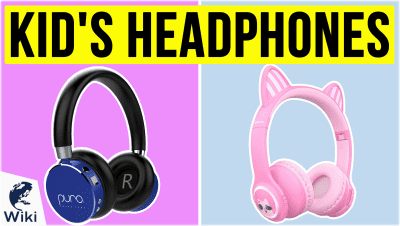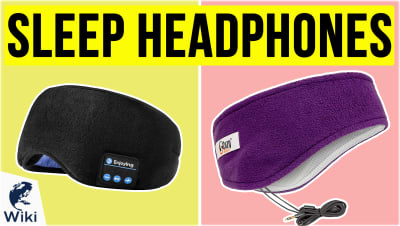The 8 Best Noise Canceling Headphones

This wiki has been updated 47 times since it was first published in April of 2015. Great for traveling and for getting the best sound quality with minimal outside interference, these noise canceling headphones come with a variety of features, including Bluetooth connectivity for wireless use and comfortable earcups for all-day listening. They're ideal for plane rides and for commuting on noisy buses and subways, and some use powerful apps to help you customize the performance. When users buy our independently chosen editorial selections, we may earn commissions to help fund the Wiki.
Editor's Notes
July 15, 2021:
Sadly, some of our favorite budget-friendly headphones manufacturers recently went out of business, so we had to scrap a few low-cost models during this round of updates. Never fear, though, as we're excited to introduce the Tranya H10, which are probably the least expensive headphones yet to feature the efficient and great-sounding aptX HD codec. We also added the renowned Bose 700, which don't have the codec support to satisfy most Android users but look and sound perfect when paired with an iPhone.
July 20, 2020:
If you want, you can spend a lot on a high-quality set of cans that blocks a significant amount of noise and delivers impressive audio quality. The Sony WH1000XM3 and Bose QuietComfort 35 Series II are both excellent examples of this, as are the Sennhesier Momentum 3. The Sony are widely seen as having the most effective ANC technology, although the Bose are a close second and have been highly regarded for years. One interesting note is that Bose did release the 700 headphones last year, but they weren't direct replacements for the QC35 II, and in many respects, they aren't as good. Call quality and ANC performance have supposedly received nominal upgrades, but the entire package isn't as streamlined, and some users take issue with the significant amount of permissions required to use the companion app. If you're looking for audio quality first and foremost, though, the Sennheiser might be the best option for you.
On the budget-friendly side, though, you do have plenty of worthwhile options. The TaoTronics BH060 are of particular note, as they're quite affordable for the category and feature aptX codec support that should suffice for the vast number of wireless headphone aficionados. The Anker Soundcore Life Q20 are another pair that perform well at a good price, although they lack aptX support.
Two interesting choices were designed with gamers in mind. The JBL Quantum One are among the very few with a mic boom as well as ANC support, and their VR-like head tracking feature can really help to increase immersion in the right titles. The Razer Opus are particularly neat headphones, with decent codec support and premium tuning that renders them great for gaming, listening to music, and watching TV and movies.
There are also more earbuds offered today with ANC than ever before, and they're significantly better engineered than they were a few years ago. The Apple AirPods Pro, of course, are immensely popular, and are some of the finest in-ear options overall, although their performance isn't as stellar when used with an Android phone as when used with an iPhone, due to differences in the platforms' implementation of the AAC codec. The Bose QuietComfort 20, on the other hand, come in specialized versions for either Android or iOS devices, and the Mpow X3 are reasonably priced options that work similarly with any operating system.
March 04, 2019:
Active noise canceling is a super interesting technology, and it's important to note what it does and doesn't do when you're shopping for your next set of headphones. These cans aren't designed to completely silence everything around you, although some high-end models do offer programmable levels of canceling.
One tip that works well for many, is that if you're looking for near-total serenity, a pair of inexpensive earplugs, paired with one of these sets of headphones, will block out seriously impressive levels of sound. With that being said, Bose has long been a leader in this technology, and the second generation of their QC 35s are, once again, some of the best that money can buy. Far be it from us to avoid recommending a great product because it's expensive, but most people don't want to spend as much on headphones as these cost. The Bang & Olufsens and Sennheisers cost a similar amount, and many people find their sound quality to be better overall, though their active attenuation may not hold up to that of the Bose. For what it's worth, Bose also makes some of the only active canceling ear buds worth buying.
Interestingly, the TaoTronics, Cowin, Anker, and Paww all offer fantastic ANC, at a literal fraction of the price of many others. And the Pawws, it should be noted, may be the best-looking out of the whole group, even though they really don't cost very much. If you're intent on great audio, but don't want to jump to the highest price level, the AKGs and Sennheiser 550s are both great compromises.
Special Honors
Montblanc MB 01 If you're willing to make a significant investment, you might appreciate this high-end pair that, oddly enough, comes from a manufacturer of luxury pens, travel equipment, and other business gear. They are pretty bulky, but they're designed with premium acoustics, advanced ANC, and a reasonably light weight that should satisfy many of the most demanding users. montblanc.com
How Noise Cancelling Headphones Work
Or in other words, they can make myriad aspects of your life a bit quieter, a bit clearer, and a bit more pleasant.
Noise cancelling headphones were originally developed to be used by pilots flying noisy helicopters and aircraft. They first saw practical use in the aviation field in the 1950s, and became more and more common throughout the rest of the 20th Century. While conceived of for use in the cockpit, noise canceling headphones have achieved great popularity in the wider consumer market thanks to their ability to limit external sounds and accentuate the aural content a listener wants to enjoy.
There are two basic principles at play behind a pair of noise canceling headphones. First is the basic soundproofing that can occur when you slip a pair of headphones over your ears or insert earbuds into your ears. This passive and mechanical soundproofing is the chief method noise canceling headphones use to limit higher frequency noises. The second strategy these devices employ is active noise cancelation, or ANC, whereby a microphone built into the unit detects the ambient noises around the listener.
The microphone focuses on low-end and long-lasting sounds it picks up and transmits this data to the processing circuitry, which then generates a waveform that is the opposite of the low frequency sounds detected. This opposite frequency can cancel out the sounds that would otherwise reach the wearer's ears, leaving him or her in relative peace and quiet. This allows the desired audio to be delivered directly to the listener's ears and, in many cases, can significantly improve the quality of what the user wants to hear.
As neither active noise control nor soundproofing are entirely effective at blocking out unwanted sounds, perhaps the term noise cancelling is a bit of an overstatement. Nonetheless, these headphones can do much to make a commute quieter, an office more productive, or a piece of music sound more crisp and clear even against the background din. Or in other words, they can make myriad aspects of your life a bit quieter, a bit clearer, and a bit more pleasant. That's worth the extra cash a pair of noise canceling headphones will cost you when compared with standard earphone options.
Noise Cancelling Headphones For Music And Media
If you don't actually care much about the crisp clarity of your music, or if you don't often find yourself suffering through noisy flights or cacophonous commutes, then perhaps a pair of noise cancelling headphones is a luxury you don't need to consider. If, however, you are consistently upset by the intrusive sounds and the sheer volume of noise you encounter, noise cancelling headphones might be more necessity than luxury. Nonetheless, it's easier than ever to find active noise reduction on quality headphones that won't break the bank.
Likewise, if you will almost always be using your noise cancelling headphones at home or at your workplace, you might be better of selecting a large, bulky pair.
If you are selecting a pair of noise cancelling headphones for use while gaming or watching movies at home (or in your dorm), or for use whole at your desk at work, then chances are a wired pair won't hinder your ease of use. Selecting noise cancelling headphones that use a wire eliminates the need to worry about charging batteries. Choosing a pair that can run on batteries or off a wired connection is an even better idea, as it lets you move about untethered when needed yet unfettered by battery life the rest of the time.
Likewise, if you will almost always be using your noise cancelling headphones at home or at your workplace, you might be better of selecting a large, bulky pair. While not ideal for use during travel, larger headphones mean more soundproofing capability and more room for quality acoustic components. These larger options also often feature more soft, pillowy cushioning, which you'll appreciate if you're wearing your headphones for hours on end.
Noise Cancelling Headphones Beyond The Music
If you need a pair of noise cancelling headphones to assist you in the proper execution of your work or as an aid for more enjoyable (or even just more endurable) travel, then there are several factors to consider. First think about whether you need reliable two way communication, and if so look for a pair of headphones with a microphone and the ability to handle phone calls. When you use a pair of noise cancelling headphones to make calls, you might finally be able to hear the person on the other end of the line even if you work at a loud job site, you oversee a factory floor, or you are in another noisy environment.
Next, consider battery life. Some noise cancelling headphones only offer a six hour battery life, for example, which won't even get you through the workday. Spending extra cash for a unit that can last for many hours of use is money well spent. Next consider size and weight; especially if your job requires lots of moving around, the lighter your headset, the better. And if you can find a pair of noise canceling headphones that's relatively compact, so much the better for use as you commute and as you store the headphones when not using them.
If your work regularly exposes you to a decibel level beyond what is considered safe for human health, which is a noise level of around 85 decibels or below for and eight hour work day, then ear protection isn't optional, it is absolutely imperative.




